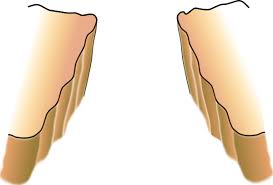 Indie eBooks Need to be Segregated
Indie eBooks Need to be Segregated
(Reprinted with permission from Michael Kozlowski, Editor Good eReader)
Industry analysts are claiming that by 2020 50% of all digital books will be written by indie authors. This is going to create massive problems for online bookstores who constantly wrestle with eBook discovery. Simply put, Amazon, Barnes and Noble, and Kobo did not design their systems to take into account 25,000 new indie titles submitted to their services every month. They were designed for traditional publishers. Without spending hundreds of millions of dollars in redesigning their entire infrastructure, there is a simpler, more elegant solution. Indie authors need to have their books segregated from traditionally published books.
Traditional publishers are beginning to feel a financial pinch due to the dirge of self-published eBooks. Recently Harlequin stated, “The proliferation of less expensive, and free, self-published works could negatively impact Harlequin’s revenues in the future.” Self-Published books have basically forced the company to shed staff and overhead costs in order to remain competitive.
Forget 2020, right now the onslaught of self-published titles is causing chaos in online bookstores all over the world. Last October a massive firestorm erupted due to hundreds of adult eBooks with topics ranging from threesomes to incest were being listed in the same category as kids’ books. Major booksellers such as WH Smith shuttered their digital bookstores, resulting in thousands of customers unable to buy books at all. This was basically a Kobo problem, since WH Smith actually has a license with Kobo to sell digital books. Not only did Kobo get dissected by mainstream media, but they pissed off authors by deleting over one thousand titles from vanity presses and their own Writing Life platform.
Amazon, Barnes and Noble, and Kobo all have self-publishing platforms that allow writers to submit content right to their websites. Other companies such as Smashwords and LULU have distributing programs that allow their own pool of authors to submit content. There is no quality and control over the books when they are put up for sale, other than abiding by general formatting principles. Since there is no vetting process, there are hundreds of thousands of indie titles listed side by side with traditional publishing.
Not only do we have a massive problem with adult content still creating problems in every major bookstore, but eBook discovery is also being hampered. Indie writers are using keywords they shouldn’t use. Instead of being realistic they are using keywords from other popular books so they show up when customers do search queries for existing titles. Amazon is actually cracking down on this process, but there are too many titles being uploaded to manually get them all.
A few days ago, I wrote a piece about self-publishers not being considered real authors. You are only considered a real author if you can make your living solely from the book sales. If you can’t, you are merely a writer, which is still fine. The reason I wrote that post is the industry needs to define the good writers from the bad. The primary way we can do this is by sales figures; if authors make their living from publishing, they are often considered good writers. Once we can define a good writer from a bad, we can start to segregate them.
All major bookstores have indie titles listed side by side traditionally published books. Normally, traditionally published books have an expectation of quality in editing, cover art, formating, and foreign translations. I am not saying all traditionally published books are good, but there is some expectation of quality in being able to read it. Indie titles have no quality and control, often they are merely submitting a Word document to Amazon and clicking publish. Having indie books listed alongside properly published books is causing massive issues.
My suggestion is for all major online bookstores that take submitted indie content to create their own sections for self-published writers. These titles should not be listed side by side with the traditional press. Indie titles should have their own dedicated sections until such time as they reach a certain threshold in sales. Once they can attain an arbitrary sales milestone, they are drafted to the big leagues and listed in the main bookstore. This idea has merit as every single sports organization in the world as the minor leagues and the big leagues. The minor leagues hone talent and develop them into good athletes who eventually get the call up.
Once you can separate indie authors from traditional published ones, it will solve a ton of issues facing the publishing industry. You will solve the problem of eBook discovery and readers will once again find a solid read faster. Searching algorithms do not have to be totally redone, you just need to have one for indie titles and one for real books. You will not have adult XXX content listed in the kids section or have people stuffing their books with negative keywords. Traditional publishers will seem more appealing and they can tap into the draft pool of indie writers to sign them to long-term book deals. Finally, the issue of Public Domain Books being repackaged as new books will be squashed for good.
If bookstores do not segregate self-published writers their entire ecosystems will be ruined. There will be so many titles listed on their bookstores that you will not be able to casually browse your favorite genre, hoping to find a good read. Take Smashwords for example, what normal human being browses that bookstore to buy and read books? It is a cesspool of poorly edited, poorly written and has no quality or control. These same books are being distributed to every major bookstore, basically creating huge problems. Right now, check out the Amazon bookstore in the Romance section. Even on page 1 is nothing but self-published books, with terrible cover art. These titles need to be culled, ASAP.
(Originally posted at GoodEreader)





